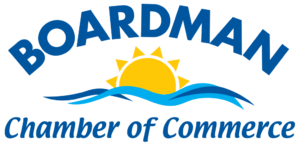Why Small Business Owners Should Seriously Consider Rental Properties
When you're running a small business, most of your energy goes into making operations smoother and customers happier. But if you're thinking about long-term stability, building wealth outside of your core business can be just as important. One increasingly popular path? Investing in rental properties.
Whether you own a bakery or a consulting firm, income from well-managed rental units can bring consistent revenue and long-term equity — and it’s especially smart during transitional moments like expanding, hiring, or planning for retirement.
Steady Income Meets Scalable Wealth
Owning rental property offers more than just a side hustle — it gives you something many small businesses lack: predictable, passive income. Once tenants are in place, your rental can generate cash flow month after month. If you scale strategically, you can create a durable income stream that complements your primary business.
Why it matters: This additional income can serve as a buffer during seasonal dips, economic slowdowns, or even unexpected personal setbacks. And unlike business income, rental property revenue is often shielded by tax deductions for mortgage interest, depreciation, and repairs.
For a breakdown of how to structure these assets for tax efficiency, this overview on real estate business entities can help.
Protecting Property with Smart Lease Agreements
One of the first steps in being a responsible landlord is having a rock-solid lease. Generic contracts often don’t cover the real risks — like property damage, nonpayment, or disputes over repairs.
Tailored agreements that match your property type (say, a duplex vs. an apartment) help reduce ambiguity. And property managers can streamline the entire process using e-signature platforms — eliminating in-person delays or paperwork errors. If you need to get started, here’s a useful option for lease agreements designed with digital signing in mind.
Benefits at a Glance
Here's how owning rental properties complements small business ownership:
-
Passive income: Smooth out cash flow during slow business periods.
-
Appreciation: Build wealth through long-term property value increases.
-
Tax advantages: Deduct expenses and reduce overall tax burden.
-
Diversification: Don't rely solely on business income.
-
Exit strategy: Use rental income to fund future transitions (like succession or sale).
Key Considerations Before You Buy
|
Factor |
Why It Matters |
What to Do About It |
|
Local Market Trends |
You’ll want rent demand, not just low prices. |
Use tools like Rentometer to validate rents. |
|
Zoning & Regulations |
Not all properties are legally rentable. |
Check with local permitting offices or Chamber resources. |
|
Maintenance Capacity |
Rentals require time or contractor oversight. |
Decide if you’ll self-manage or hire a property manager. |
|
Financing Structure |
Commercial loans often differ from personal ones. |
Compare lenders and check requirements from sources like LendingTree. |
|
Insurance Needs |
Rental insurance is different from homeowner’s. |
Speak to an advisor or review guides from Policygenius. |
FAQ: Common Questions for Small Biz Landlords
Can I manage a rental while running my business?
Yes — if it's a small-scale investment and you use tools or hire part-time help, you can manage rentals with minimal distraction.
What kind of property should I start with?
Single-family homes or duplexes are often easier to manage for first-time landlords.
What if I need capital to invest?
You can explore small business lines of credit or consider cash-out refinancing, but always compare loan terms with reputable providers.
Are there downsides to consider?
Yes — vacancies, unexpected repairs, and tenant conflicts can be costly. But with the right prep and lease structure, these risks are manageable.
Is it better to form an LLC for rental income?
It depends. Many investors do this for liability reasons. Learn more from this LLC vs sole proprietor comparison.
Tool Spotlight: Landlord Studio
If you’re looking for a platform to manage income, expenses, and documents in one place, Landlord Studio offers a clean dashboard and easy automation. It's a good fit for small business owners juggling multiple tasks. Keep in mind: many tools offer free trials, so compare before you commit.
Final Takeaway
If you’re a small business owner thinking long-term, rental property can be more than a side hustle — it’s a wealth-building strategy. It gives you the ability to generate income outside your core business, diversify your assets, and create a foundation for future transitions. Just be sure to approach it with the same attention to detail and strategic planning you use in your business.
Discover the vibrant community of Northeastern Oregon by joining the Boardman Chamber of Commerce, where nearly 250 diverse member firms and individuals come together to support and grow local businesses!

